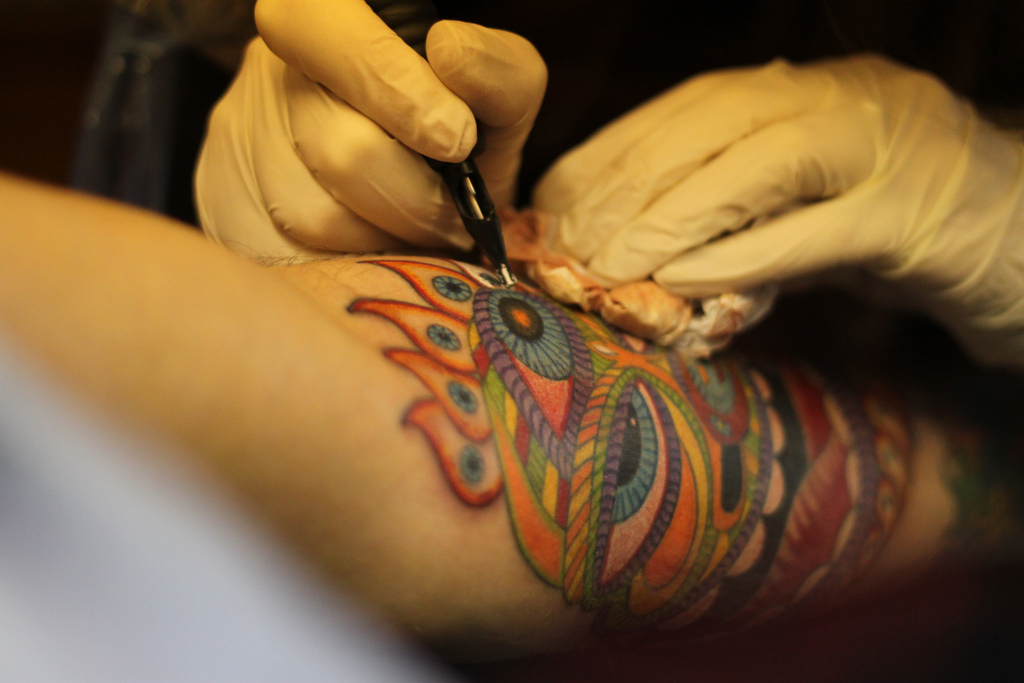Before arriving in South Africa for a month of study I knew two things about the country. One, I had watched the “Color of Friendship” twice when I was 9 years old, and two, my sister had requested I bring back a vuvuzela like the ones used in the World Cup. I can’t decide what’s worse about this list: The fact that I went to a country rich with a turbulent history without ever opening Wikipedia before getting on the plane or that I was a rising college senior and a political science major with absolutely no grasp on apartheid. It wasn’t that I had intentionally avoided the subject; it just had never really come up in any of my classes. But fear not, this is not a diatribe about the failing of the American education system; this is about a great man’s birthday
My first week in Port Elizabeth, a small beach town about eight hours from Capetown, I was lucky enough to see the Nelson Mandela Memorial statue in person. The memorial depicts a line of people, all waiting to vote for the first time, and ends with Mandela and his classic “fist-in-the-air” pose. Being a child who grew up in D.C., I saw plenty of memorials in my time. I’m not sure if it was the amazing view of the ocean or our guide’s touching story about watching his dad cry with joy when he gained suffrage in 1994, but this memorial touched my heart. It’s not stuffy and obtuse. It’s history that is fresh, paralyzing and thought provoking. It evokes human emotion and thought. I have never felt compelled to consider anything while at the Jefferson memorial except thoughts of a soft pretzel on the way out. To think of a grown man crying because he finally received the right to vote for a candidate that was his skin color is powerful. But to think of this happening during your lifetime, not in a history book or a grainy PBS documentary, that is a realization that crawled into my heart and never left.
I quickly learned that Mandela is the Jesus of South Africa. And to be honest, he very well should be. Although many people contributed to the abolition of apartheid, Mandela managed to remain an influential figure in the movement during his 27 years in prison. For God’s sakes, the man learned Afrikaans in prison so he could converse with his guards in an attempt to convert them to his point of view. The many people I met referred to him as Madiba, his Xhosa clan name. In South Africa, it’s a sign of honor and respect to refer to someone as their clan name. How often is it that a President, of any country, remains in the good graces of their constituents after they are in office? I’ve never seen anyone cry talking about George Washington or heard of anyone naming his or her child after Abraham Lincoln. I would say Bill Clinton gets a moderate level of respect, mainly because of his profound ability to do arithmetic at Democratic National Convention, and the rest of the living former presidents are merely tolerated.
Of all the things I did in South Africa, the most special day was Mandela Day. There is no American equivalent to this day. Sure, in America we get Martin Luther King’s birthday off or we have fireworks to celebrate the formation of our nation. This is child’s play, no, infant’s play in comparison to South Africa’s celebration of Mandela’s birthday. It is encouraged on Mandela’s birthday to do 67 minutes of service because that’s the number of years he actively fought against apartheid in South Africa. My group was assigned the Missionvale Care Center, a community center run by nuns in the Missionvale Township. A township is essentially a slum and the care center acted as a school, doctor’s office, employer and church for the poorer people in the area. It amazed me how many people from big companies were given time out of their workday to come and volunteer. There were so many volunteers that we had made 500 fish paste and butter sandwiches in 20 minutes. We filled the rest of the time playing with the school children and cleaning because people refused to leave before their 67 minutes were up. As I was chatting with the native South Africans, they all had a different reason why this day was important to them. For some, Mandela is the reason they can go to school, vote and be considered equal. For others, he stands for something we all should, hope. After we had finished our allotted time, we were rushed back into the large auditorium for some speeches and to sing “Happy Birthday” to Mandela. I think the lyrics really say it best, “Happy Birthday Madiba, no one is like you”.
Share this:
- Click to share on Tumblr (Opens in new window)
- Click to share on Twitter (Opens in new window)
- Click to share on Facebook (Opens in new window)
- Click to share on Reddit (Opens in new window)
- Click to email a link to a friend (Opens in new window)
- Click to print (Opens in new window)
- Click to share on Pocket (Opens in new window)
- Click to share on LinkedIn (Opens in new window)
- Click to share on Pinterest (Opens in new window)




